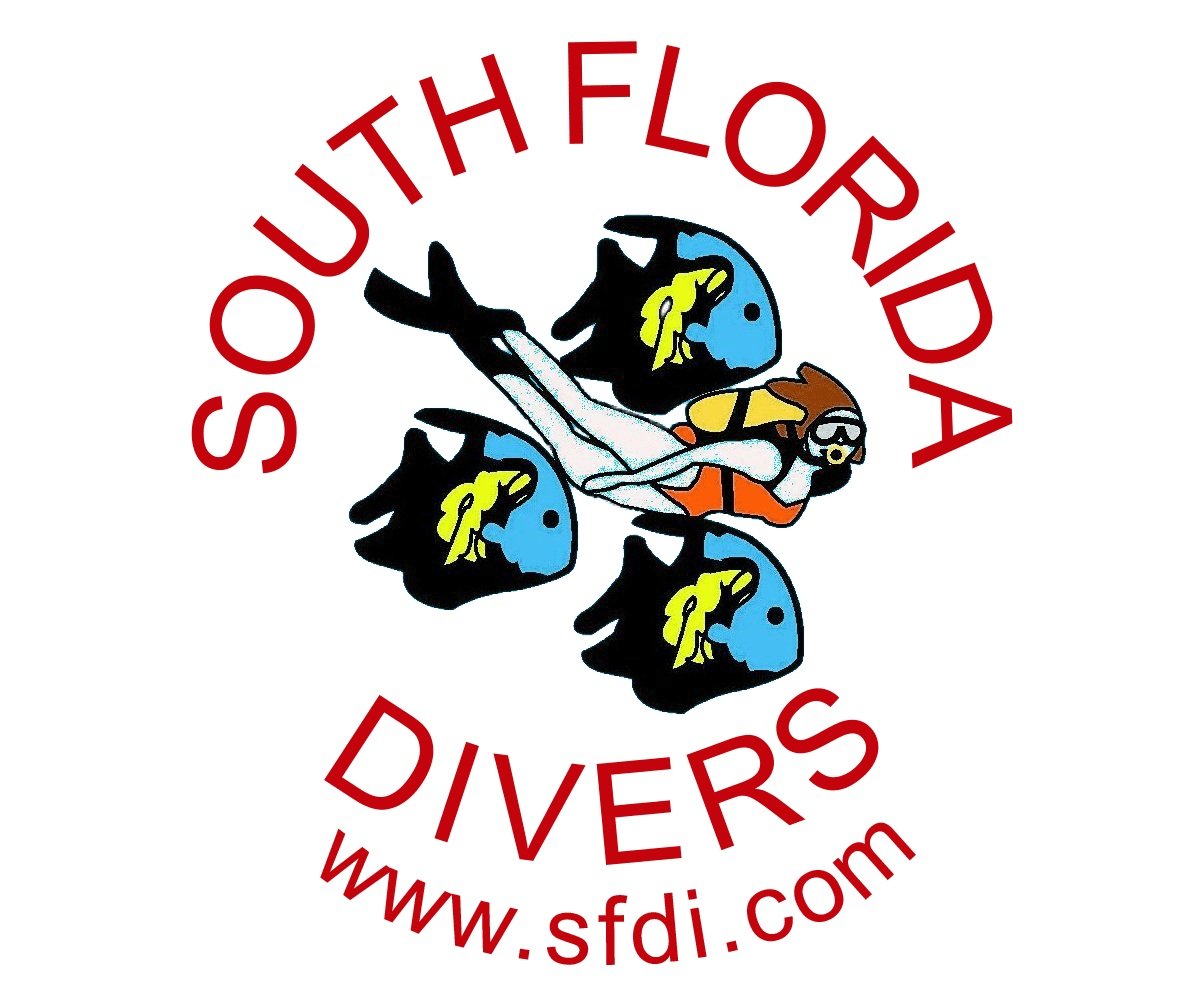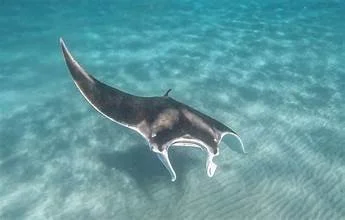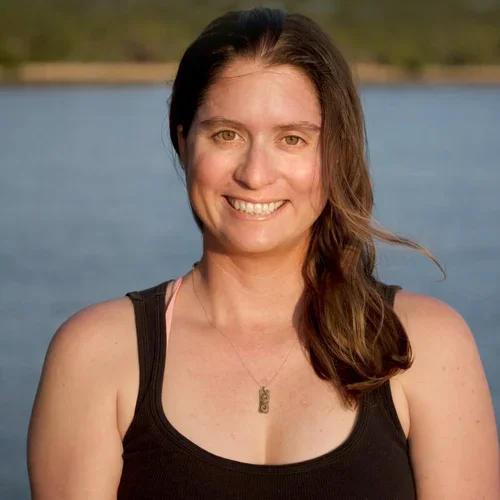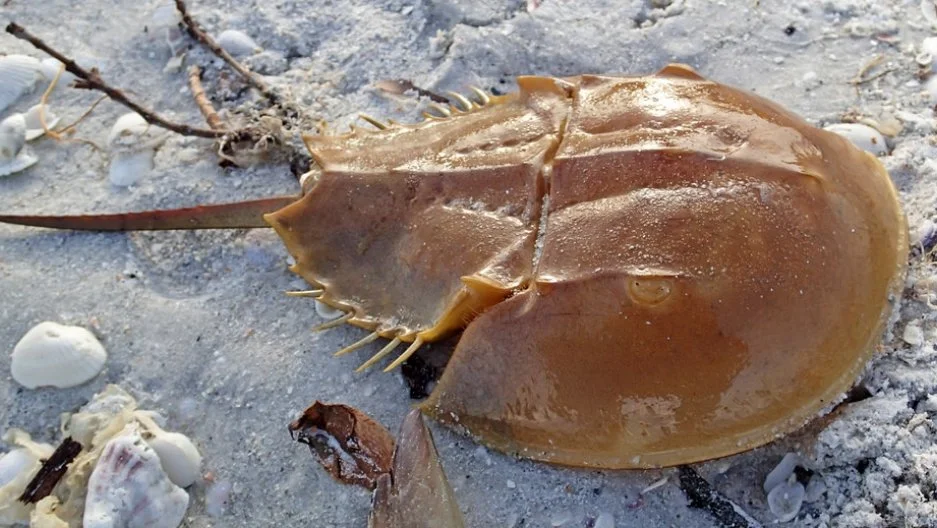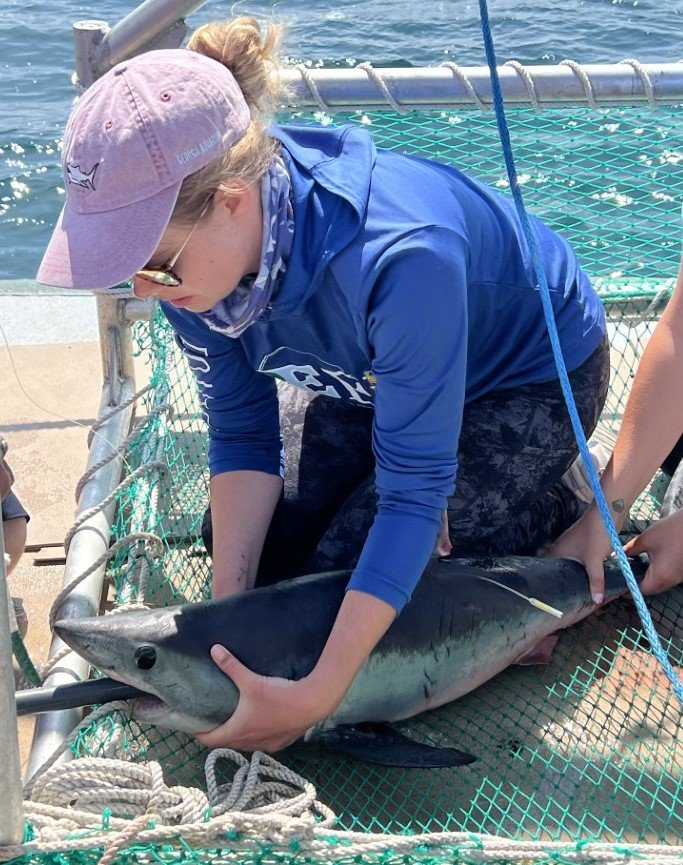
NOVEMBER - Jessica Pate, UNC, FAU
The mysterious manta rays of Florida
Jessica will be talking about manta ray biology and global manta ray conservation, as well what discoveries that she has made about Florida’s manta rays. She has studied sea turtles in Florida, Central America, and West Africa. You will also find out how to become a citizen scientist and contribute to important manta ray research! In 2016, Jessica started the Florida Manta Project to study the biology and ecology of manta rays in South Florida and has discovered a potential rare nursery habitat. The Florida Manta Project is the first dedicated study of manta rays in the continental U.S.
Jessica Pate
Jessica Pate has an undergraduate degree from UNC-Chapel Hill and a graduate degree from Florida Atlantic University. She has taught marine biology on traditionally rigged schooners and has crossed the Atlantic Ocean by sail. Jessica’s research interests focus primarily on the biology, ecology and behavior of imperiled marine species to inform management decisions. While she began her career collecting data on sea turtle populations, she now researches a never-before studied population of manta rays in south Florida. Jessica is interested in understanding the environmental drivers of spatial and temporal distribution, life history traits and anthropogenic impacts on Florida’s manta rays. She utilizes a range of methodologies including underwater photography, aerial surveys, satellite and acoustic telemetry, genetics, and sociological surveys to answer her research questions. A key component of her research is involving local stakeholders in data collection and conservation, as well as raising awareness of marine conservation issues to the general public.
OCTOBER - James Ferrara, Photography and Diving in Antarctica
Our esteemed guest speaker, James Ferrara, will deliver an informative presentation on his recent month-long expedition to Antarctica. His talk will encompass various topics, including the how the journey came about, logistical considerations, the daily routine aboard the vessel, the crossing of the Drake Passage, the equipment used for diving and photography, and the visual encounters with icebergs, whales, penguins, and leopard seals. At the end of presentation, James will open up the floor to any questions the members may have.
SEPTEMBER - John R. Lewis, Florida Department of Environmental protection
The Incredible Horseshoe Crab
The incredible horseshoe crab
Join SFDI on September 3 for a fascinating exploration of the wonderful “Prehistoric Superstars” known as Horseshoe Crabs. Dive into the history, significance, and contribution that Horseshoe Crabs have given to human health and sciences. Learn how to collect valuable surveys for scientific data and contribute to a citizen science campaign. Horseshoe Crabs have been here for millions of years and play a vital role in our ecosystem. Explore the life cycle and challenges these marvelous creatures face on their journey of life.
John Lewis will be joining our September meeting from Zoom to tell us more about this creature’s ancestry, behavior, and how we are dependent it.
ABOUT JOHN LEWIS
John Lewis was born and raised in Clinton County, Ohio. The day after graduating high school John started his career in Ohio State Parks while attending college. After graduating college with a degree in Political Science and Public Administration and attending graduate school, John completed his six-year term with Ohio Department of Natural Resources in October of 2022. In November of 2022 John Lewis started as a Park Ranger for Long Key State Park and now serves as the Park Service Specialist leading the effort of imperiled species management, volunteer coordination, and natural resource management. He has now served as the Horseshoe Crab Watch Tagging coordinator for almost 3 years. John is also our interpretive specialist educating the public about our park’s wildlife species and the importance of protecting the habitat they thrive in.
AUGUST - Dr. Matt Ajemian, FAU Harbor Oceanographic Institute, The Return of Florida's Great Goliath Grouper – New Opportunities and Challenges
As Florida’s largest reef fish (weighing up to 800 pounds), the goliath grouper (Epinephelus itajara) is certainly great. Once fished to the brink of extinction, this species is once again common along many of Florida’s reefs, thanks to decades of protection. However, some argue that goliath grouper have become “overabundant,” making it difficult for fishermen to land smaller snappers and groupers when fishing their reefs and wrecks as these larger fish sometimes steal their catch. Here we discuss previous and ongoing research on this species, which lies at the center of an ongoing fishery management controversy, including some of the latest technology that is being used to study the behavior of these mysterious fish in fine detail. Lastly, we discuss a recently completed study between University of Florida IFAS Extension/Florida Sea Grant and FAU Harbor Branch to develop best catch-and-release practices to ensure the growing recreational fishery for goliath grouper is sustainable.
Dr. Matt Ajemian is an Associate Research Professor with Florida Atlantic University's Harbor Branch Oceanographic Institute. Dr. Ajemian earned his PhD in Marine Science at University of South Alabama and Dauphin Island Sea Lab in 2011 and spent four years as a post-doc and research scientist with the Center for Sportfish Science and Conservation at the Harte Research Institute for Gulf of Mexico Studies, Texas A&M University-Corpus Christi. Over the course of his career Ajemian has developed expertise in ichthyology, ecology, and fisheries science and has covered topics such as feeding ecology, habitat use, movement behavior, fisheries impacts, and bycatch. He now leads the Fish Ecology and Conservation Lab at FAU-HBOI, and as lead PI develops, conducts, and directs research.
